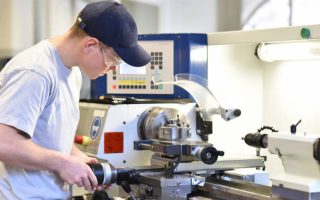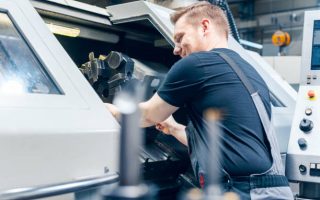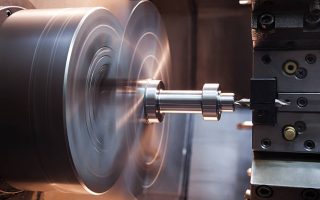
Introduction to Wood CNC Machines
CNC (Computer Numerical Control) machines have revolutionized the woodworking industry by automating and enhancing precision in cutting, carving, and shaping wood. A wood CNC machine uses computer software to control tools such as routers, drills, or lasers, enabling users to create intricate designs and perform repetitive tasks with unparalleled accuracy. However, before investing in a wood CNC machine, it’s essential to evaluate whether it’s worth the cost and effort for your specific needs. This comprehensive guide will explore the benefits, drawbacks, applications, costs, and considerations associated with wood CNC machines to help you make an informed decision.
What is a Wood CNC Machine?
A wood CNC machine is a specialized device designed to cut, carve, engrave, or shape wood materials using computer-aided design (CAD) and computer-aided manufacturing (CAM) software. The machine interprets digital designs and translates them into precise movements of the cutting tool. Wood CNC machines come in various sizes and configurations, ranging from small desktop models for hobbyists to large industrial machines for professional woodworkers and manufacturers.
The primary components of a wood CNC machine include:
- Controller: The brain of the machine, which interprets the CAD/CAM instructions and directs the movement of the cutting tool.
- Cutting Tool: Typically a router or spindle, this tool performs the actual cutting, carving, or engraving.
- Worktable: The surface where the wood material is secured during the machining process.
- Motors and Drive System: These components control the movement of the cutting tool along the X, Y, and Z axes.
- Software: CAD software is used to design the project, while CAM software converts the design into machine-readable instructions.
Benefits of Owning a Wood CNC Machine
Wood CNC machines offer numerous advantages, making them a valuable investment for certain individuals and businesses. Here are some of the key benefits:
1. **Precision and Accuracy**
One of the most significant advantages of a wood CNC machine is its ability to produce highly accurate and consistent results. Unlike manual woodworking, which relies on the skill and steadiness of the operator, CNC machines follow precise digital instructions, ensuring uniformity across multiple pieces. This level of precision is particularly important for intricate designs, tight tolerances, and complex projects.
2. **Increased Efficiency and Productivity**
CNC machines can perform tasks much faster than manual methods, significantly increasing productivity. Once the design is programmed into the machine, it can operate continuously with minimal supervision, allowing operators to focus on other tasks. This efficiency is especially beneficial for businesses that need to produce large quantities of products in a short amount of time.
3. **Versatility**
Wood CNC machines are incredibly versatile and can handle a wide range of tasks, including cutting, carving, engraving, drilling, and shaping. They can work with various types of wood, from softwoods like pine to hardwoods like oak and walnut. Additionally, many CNC machines can be adapted to work with other materials, such as plastics, composites, and even metals, further expanding their capabilities.
4. **Cost Savings Over Time**
While the initial investment in a wood CNC machine can be substantial, it can lead to significant cost savings over time. By automating repetitive tasks and reducing material waste, CNC machines can lower labor costs and improve overall efficiency. For businesses, this can result in higher profit margins and a faster return on investment (ROI).
5. **Creative Freedom**
CNC machines enable users to bring their creative visions to life with ease. Whether you’re a hobbyist looking to create custom furniture or a professional crafting intricate architectural details, a CNC machine allows you to execute complex designs that would be difficult or impossible to achieve manually.
6. **Scalability**
For businesses, a wood CNC machine provides the scalability needed to grow operations. Whether you’re producing a single prototype or thousands of identical parts, a CNC machine can handle the workload without compromising quality or consistency.
Drawbacks of Owning a Wood CNC Machine
Despite their many advantages, wood CNC machines also have some drawbacks that potential buyers should consider:
1. **High Initial Cost**
The upfront cost of purchasing a wood CNC machine can be prohibitive, especially for hobbyists or small businesses. Prices can range from a few thousand dollars for entry-level models to tens of thousands for industrial-grade machines. Additionally, there are ongoing costs for maintenance, software updates, and replacement parts.
2. **Learning Curve**
Operating a CNC machine requires a certain level of technical expertise. Users must learn how to use CAD/CAM software, program the machine, and troubleshoot issues. While many manufacturers offer training and support, mastering the technology can take time and effort.
3. **Maintenance and Repairs**
CNC machines require regular maintenance to ensure optimal performance. This includes cleaning, lubricating moving parts, and calibrating the machine. Repairs can be costly and may require specialized technicians, leading to downtime and additional expenses.
4. **Space Requirements**
Wood CNC machines, especially larger models, require a significant amount of space. In addition to the machine itself, you’ll need room for the worktable, computer, and storage for tools and materials. This can be a challenge for individuals or businesses with limited workspace.
5. **Noise and Dust**
CNC machines can generate a considerable amount of noise and dust during operation. Proper ventilation and dust collection systems are essential to maintain a safe and comfortable working environment. Without these measures, the machine can pose health risks and disrupt nearby activities.
Applications of Wood CNC Machines
Wood CNC machines are used in a wide range of industries and applications, including:
1. **Furniture Manufacturing**
CNC machines are widely used in the production of furniture, allowing manufacturers to create intricate designs, precise joints, and consistent components. From custom chairs and tables to ornate cabinetry, CNC technology enhances both efficiency and quality.
2. **Sign Making**
CNC machines are ideal for creating custom wooden signs with detailed engravings and unique shapes. They can produce professional-quality signage for businesses, events, and personal use.
3. **Architectural Millwork**
Architectural millwork, such as moldings, trim, and decorative panels, often requires precise and intricate designs. CNC machines can produce these elements with a high degree of accuracy, making them a valuable tool for architects and builders.
4. **Prototyping and Product Development**
CNC machines are commonly used to create prototypes and test designs before mass production. This allows designers and engineers to refine their concepts and ensure functionality before committing to large-scale manufacturing.
5. **Hobby and Craft Projects**
For hobbyists and DIY enthusiasts, CNC machines offer endless possibilities for creative projects. From personalized gifts and home decor to intricate art pieces, a CNC machine can bring your ideas to life with precision and ease.
Is a Wood CNC Machine Worth It?
Determining whether a wood CNC machine is worth the investment depends on your specific needs, goals, and budget. Here are some factors to consider:
1. **Your Skill Level and Experience**
If you’re new to woodworking or CNC technology, it’s important to assess your willingness to learn and adapt. While CNC machines can simplify many tasks, they require a certain level of technical knowledge to operate effectively.
2. **Your Budget**
Consider the upfront cost of the machine, as well as ongoing expenses for maintenance, software, and materials. If you’re a hobbyist, a smaller, more affordable model may be sufficient. For businesses, a higher-end machine may be necessary to meet production demands.
3. **Your Intended Use**
Think about the types of projects you plan to undertake and whether a CNC machine is the best tool for the job. If you frequently work on intricate designs or large-scale production, a CNC machine can be a valuable asset. However, if your projects are simple and infrequent, manual tools may suffice.
4. **Your Workspace**
Ensure you have enough space to accommodate the machine and its accessories. Additionally, consider the noise and dust levels and whether your workspace is equipped to handle them.
5. **Potential ROI**
For businesses, calculate the potential return on investment by considering how the machine will impact productivity, labor costs, and material waste. A CNC machine can be a worthwhile investment if it helps you achieve significant cost savings and revenue growth over time.
Conclusion
A wood CNC machine can be a game-changer for both hobbyists and professionals, offering precision, efficiency, and creative freedom. However, it’s essential to weigh the benefits against the costs and challenges to determine whether it’s the right choice for you. By carefully evaluating your needs, budget, and goals, you can make an informed decision and unlock the full potential of CNC technology in your woodworking endeavors.




